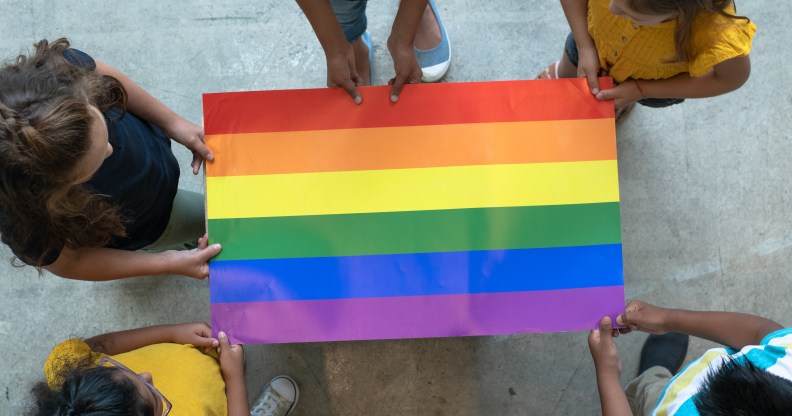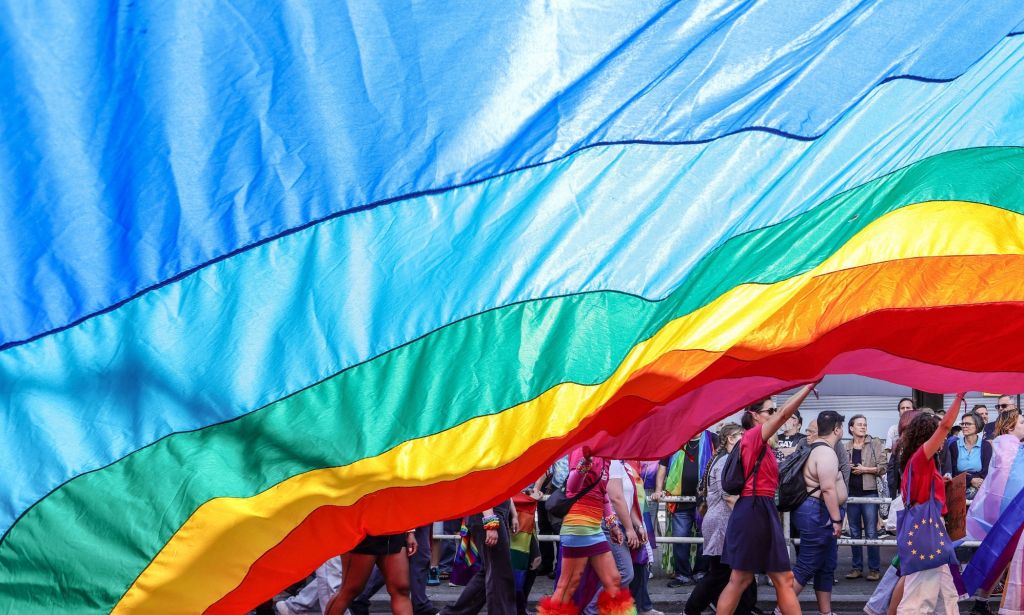Anti-LGBTQ+ rhetoric linked to decline in democracy, new study finds

A study has found aunts provide LGBTQ+ youth with consistent loving and affirming support. (Getty Images)
Countries that target members of the LGBTQ+ community and experience higher levels of anti-LGBTQ+ attacks are likely on the brink of a democratic decline, a new study has found.
With 80 per cent of the global population now residing in a country that experiences some level of restriction on freedoms, a backslide in democracy and a rise in authoritarianism is a growing concern.
In fact, data from the Varieties of Democracy (V-Dem) Institute found in 2022 that more democracies are declining today than at any point in the last century.
Now, researchers have determined that the deterioration of democracy could be linked to a country’s targeting of LGBTQ+ people through restrictive policies or a general spread of hateful rhetoric.
The new study, from The Williams Institute at UCLA School of Law, examined data from the V-Dem Institute and the LGBTI Global Acceptance Index to determine how democratic decline may be associated with changes in attitudes toward LGBTQ+ people and their rights.
This was done by analysing the trends in liberal democracy and LGBTQ+ acceptance over time, and highlighting four countries’ dynamics – Indonesia, Brazil, Poland, and Ghana – as case studies.

For example, in Indonesia, years of democratic progress were dismantled with the election of President Joko Widodo in 2014, who “curtailed freedoms of association and expression and strengthened the grip of the executive over parliament.”
Widodo’s government oversaw a crackdown on LGBTQ+ rights, including public health centre raids that impeded HIV outreach to vulnerable communities, terminating financial support for LGBTQ+-related programming, and blocks on websites that the government considered offensive of “too radical”.
When Widodo was re-elected in 2019, the decline of democracy toward authoritarianism became more blatantly obvious, through laws that curtailed workers’ rights, increased military control, and weakened the country’s Corruption Eradication Commission.
Similarly, the study finds that the gradual weakening of Poland’s democratic institutions in recent years is linked to the ascendance of the country’s Law and Justice Party (PiS) in 2015, which was bolstered by conservative media and far-right groups.
As a result, the country saw a spike in hate speech and violence against LGBTQ+ people as well as feminists, and ethnic and religious minorities.
Through these case studies and data from the V-Dem Institute and the LGBTI Global Acceptance Index, the study determined that a decline in LGBTQ+ acceptance may, under some conditions, be a bellwether of democratic decline.
“Anti-LGBTI rhetoric and policies can signal a more fundamental erosion in democratic norms and institutions,” said study author Ari Shaw, Senior Fellow and Director of International Programs at the Williams Institute.
“Efforts to marginalize LGBTI people are, on their face, evidence that democracy and respect for minority rights are under threat.”
Meanwhile, countries that are more accepting of LGBTQ+ people tend to have higher levels of liberal democracy, higher GDP per capita, more of their population in urban environments, and a generally more robust civil society.
Readers affected by the issues raised in this story are encouraged to contact Samaritans free on 116 123 (www.samaritans.org) or Mind on 0300 123 3393 (www.mind.org.uk). Readers in the US are encouraged to contact the National Suicide Prevention Line on 1-800-273-8255.
How did this story make you feel?

